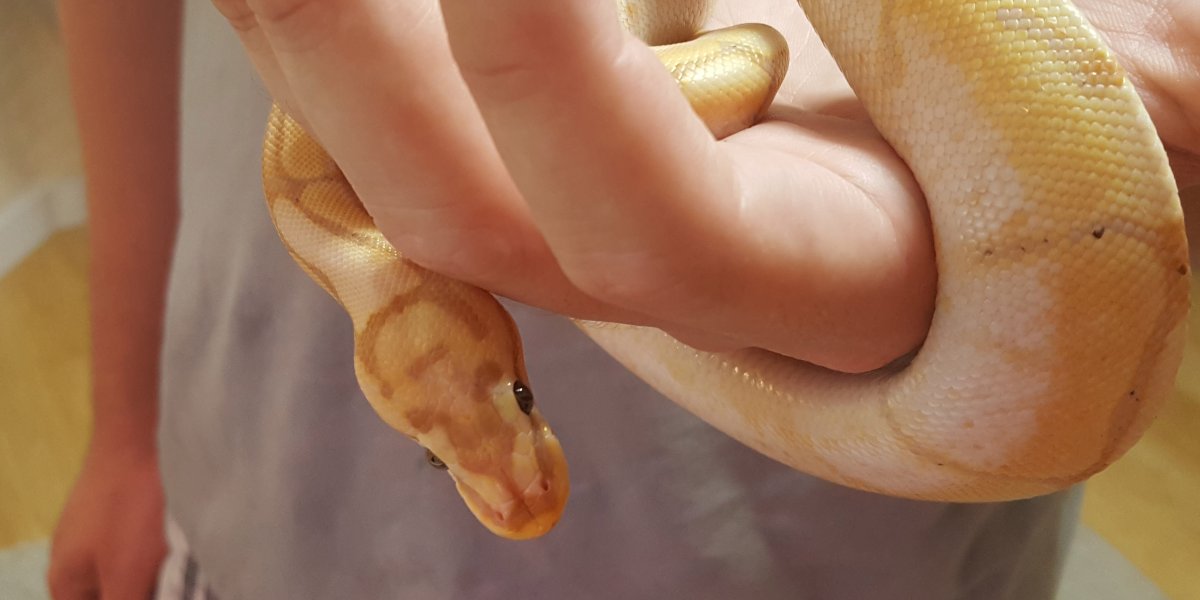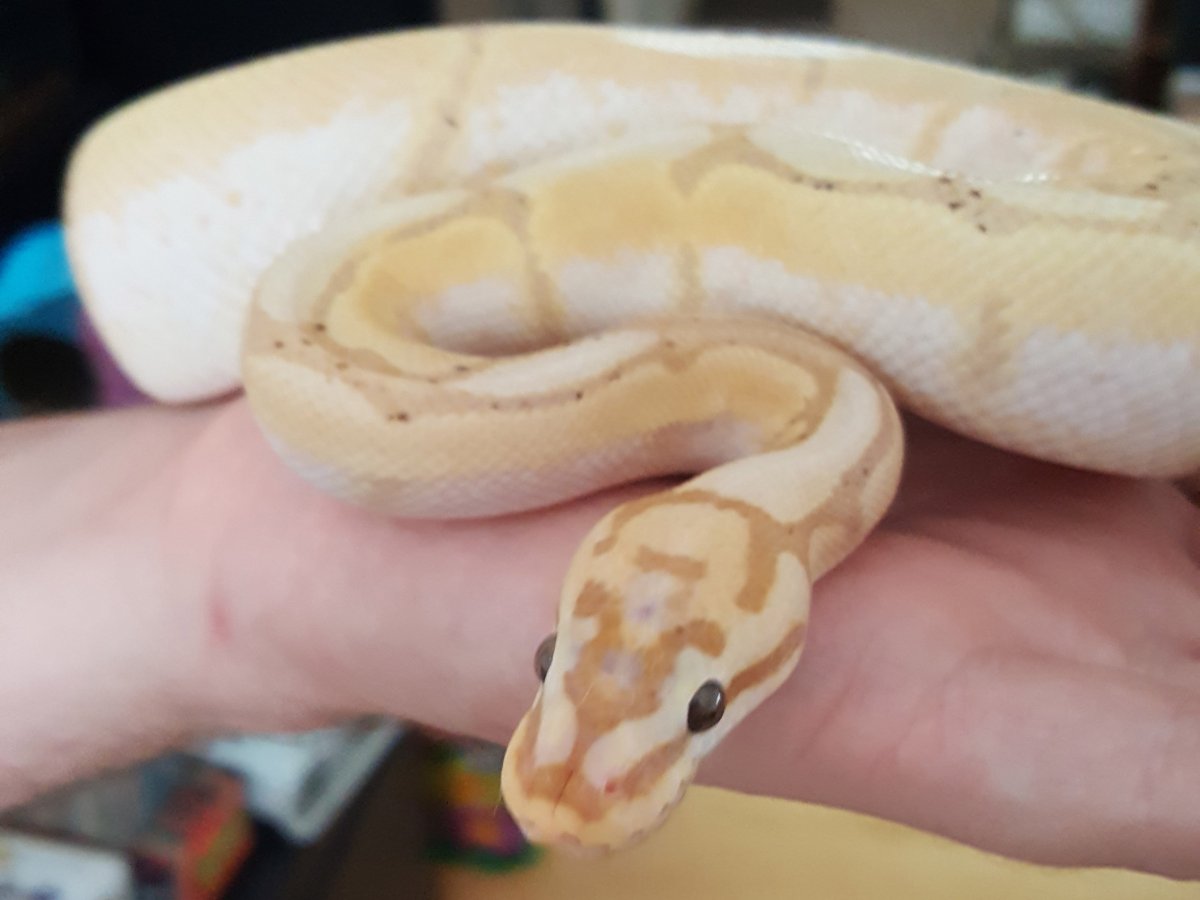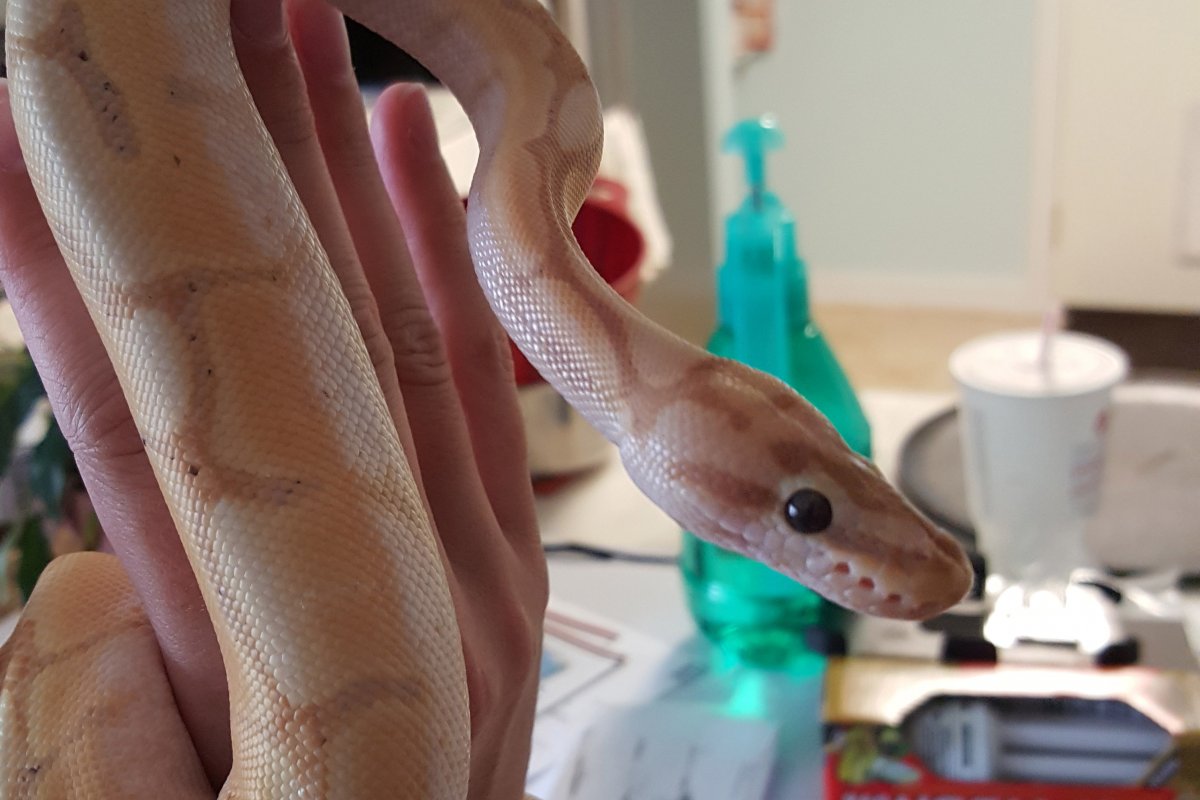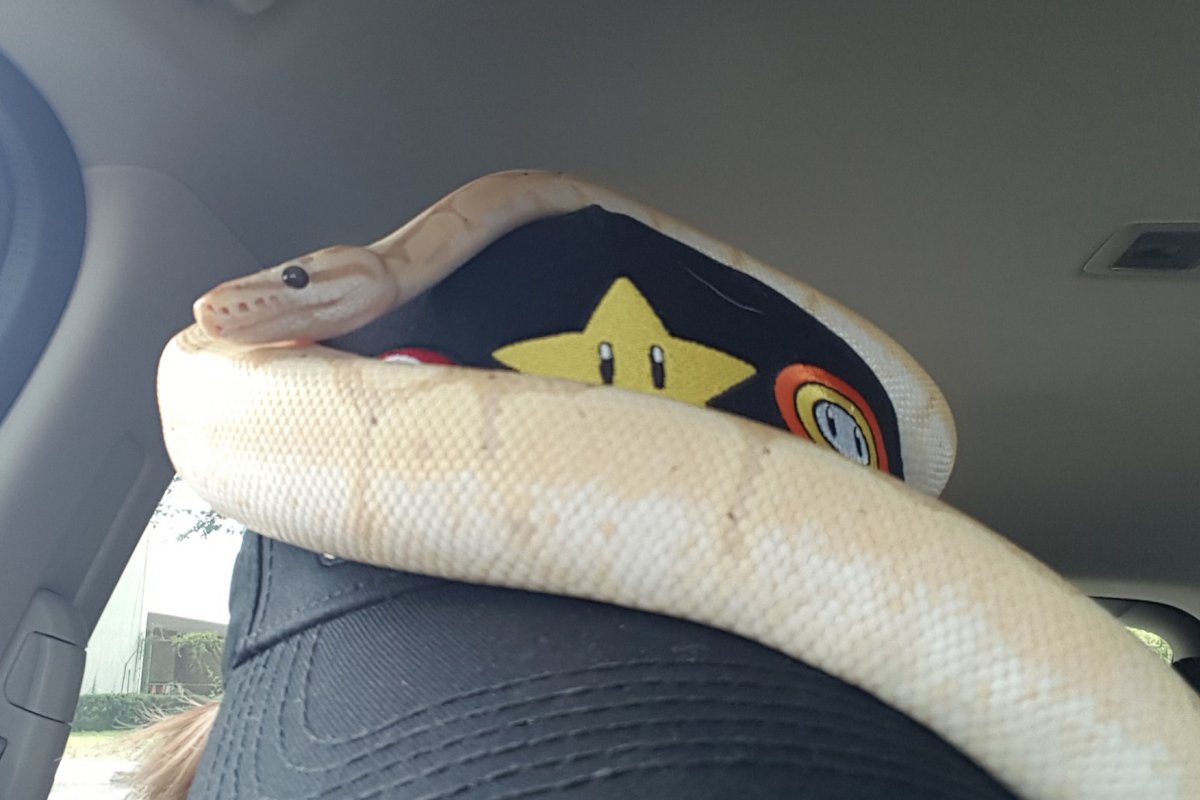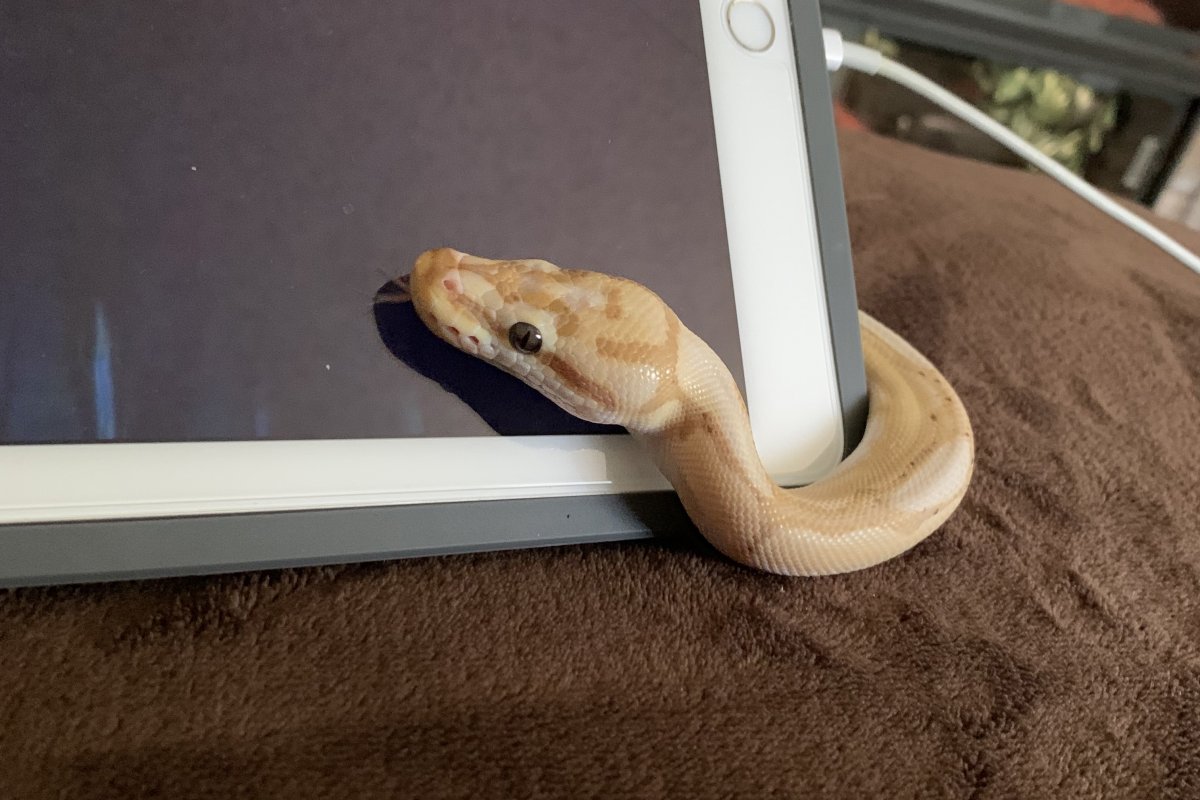We acquired Truffles, our banana spider pastel (Bumblebee banana) ball python, from a local pet store in April of 2017. It was a double purchase—one of several we made that year in our excitement to jump headfirst into the world of reptiles. I would jump at any opportunity to get a ball python—at the time we had two, Tinder and Donut—and I had fallen in love with the banana ball python, which I learned acquired more spots as it aged, just like a banana. Incidentally, we had no idea that Truffles had more than one gene, and purchased him as a banana. It just seemed like a bonus when we found out. He rarely exhibited any of the neurological issues seen in spider ball pythons. When we brought him home, he was so friendly, and had so much personality—he was an obvious choice to add to our family.
After an initially rocky start—Truffles had some scale rot on his belly, and paper towels proved to be a difficult substrate in our well-ventilated, air conditioned Florida climate—we finally got Truffles adjusted to life in our home. He and Donut were our “dream team”—we brought them with us whenever we went to a pet store to look around, and they drew eyes everywhere they went. Truffles was always excited to meet new people, and he was obligingly calm whenever someone wanted to pet him.
About 6 months after we got Truffles, though, we started to have some more concerning issues. He had bouts of diarrhea that stretched over a period of months. After some cursory guidance from the store we had gotten him from (“Most diarrhea usually goes away on its own”), we finally took Truffles to the vet in May of 2018, when he partially regurgitated a meal. He tested positive for coccidia. With that we were rather rudely awakened into the world of bacteria and parasites, because we did not realize that any critter could come in with them, or that it could take a number of months for them to manifest—well past the typical quarantine of a few months.
Truffles actually revolutionized the way we clean our reptiles, because coccidia is one of the most notoriously difficult things to kill. From that point on, everything that was soiled was taken outside and sprayed with janitor-grade ammonia, then brought back inside and washed with antibacterial soap. Every animal that came in with no medication history was given panacur and metronidazole at the earliest convenience after we acquired them, and we started giving panacur once a year to many of our animals (Worms! One of the many joys of uncooked meat).
In fact, several of the animals we acquired had some issues with diarrhea. With the new regimen, however, most of them seemed to recover just fine, and the diarrhea passed. With Truffles, though, we continued to have issues. He cleared the coccidia but tested positive for pinworms. After that, he had many, many negative fecal tests, in which we found nothing at all. Yet he continued to have diarrhea issues and would sometimes partially regurgitate his food. Truffles’ enclosure was kept isolated, and we were no longer able to take him out with us.
We tried a variety of other treatments, partnered with our veterinarians, including antibiotics, a different regimen of metronidazole, and even lactulose, in a hopeful attempt to settle his stomach and prevent more regurgitating. These things seemed to work for a little while, or maybe it was just the cyclic nature of his condition. We tried feeding mice instead of rats and using rats with very little hair in case Truffles’ stomach was being irritated by certain foods. We began to suspect that he had Cryptosporidium, which would explain our sometimes-immaculate fecals and the continued problems. Truffles was always hungry and starting to lose weight.
Paromomycin was the drug of choice for dealing with Cryptosporidium, but we unfortunately began looking for it in the middle of a human pandemic. COVID-19 had closed our vet’s doors and created more than a few issues, but our vet remembered Truffles and helped us look for medication even when we couldn't meet in person. Paromomycin, however, was still hard to come by. We did manage to get some from Wedgewood pharmacy in New Jersey (Google searches do sometimes yield good results!) with the help of our vet. So, in March of 2021, we started Truffles on a course of paromomycin.
It didn’t seem to do much at first. After a month of seeing no results, we switched Truffles to eating hairless mice, which are hard to come by even outside of a pandemic. The combination seemed to do the trick. He stopped losing weight, at least, and stopped regurgitating his food. The diarrhea continued, which we tackled with more metronidazole and a renewed attempt with ponazuril. Truffles was unfortunately still quarantined, with very little time out for handling. We enjoyed our walks around the house as much as possible, but he was no longer allowed to climb on furniture or hang out on desks.
The double-edged sword with paromomycin we read is that, while it can work, it usually doesn’t work forever. In December of 2021, when Truffles regurgitated yet again, and with a faltering weight that once again had begun to drop, we made the decision to have him humanely euthanized.
If it wasn’t one of the hardest decisions we’ve ever had to make, it was certainly one of the hardest to live with. Truffles was still eating, still shedding, still cruising around at night. You wouldn’t know that he was losing weight, or that he threw up most of his food, or that he was always hungry. You would never know how difficult it was to clean his enclosure, or how frustrating it was that this sweet, gentle snake wasn’t allowed to touch anything except hands and clothes that were washed immediately after. It isn’t easy to talk or write about. Our vet agreed when we told him all the measures we’d taken, but it was still very difficult to say goodbye.
Not all of our stories can be happy. What we can do, is work hard to learn from every experience. It is important to have incoming animals checked in with a vet. It is important to consider bacteria and parasites, especially when the animal has come from a place with a lot of other animals, particularly ones that move in and out like a pet store. And, it is good to establish proper cleaning procedures—it can save the lives of other sweet, gentle snakes. I love you, Truffles. I miss you every day.

